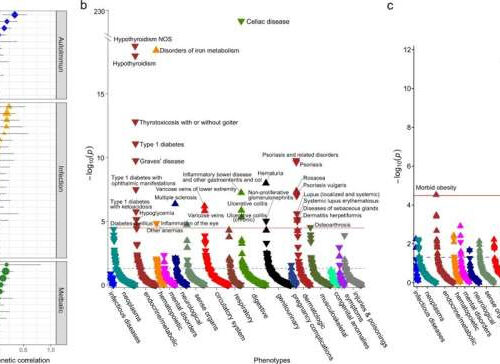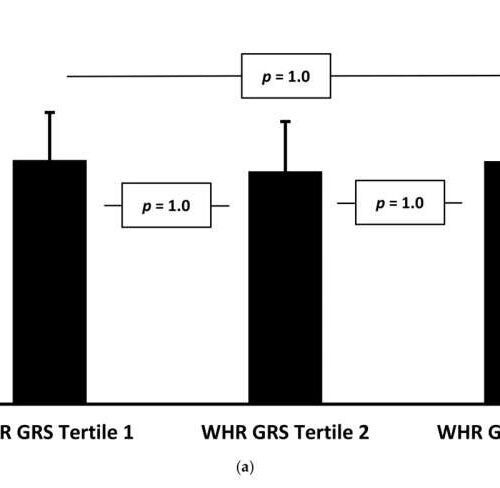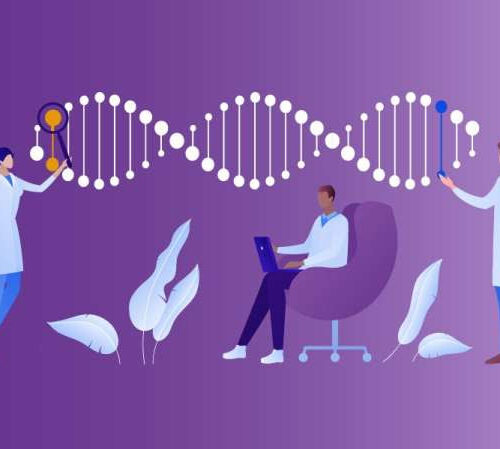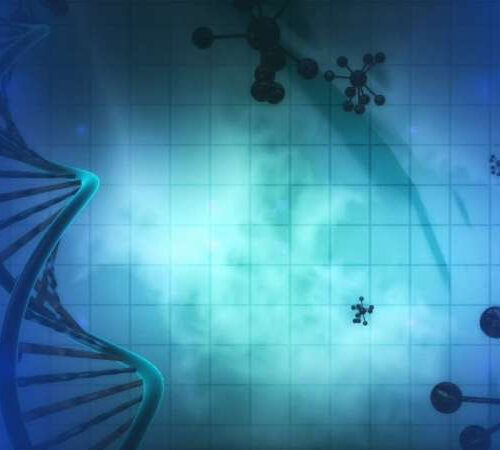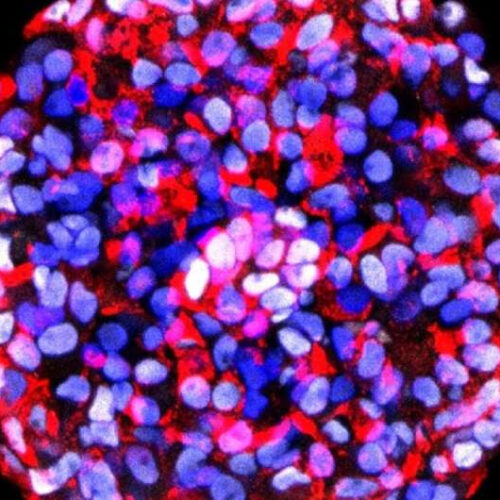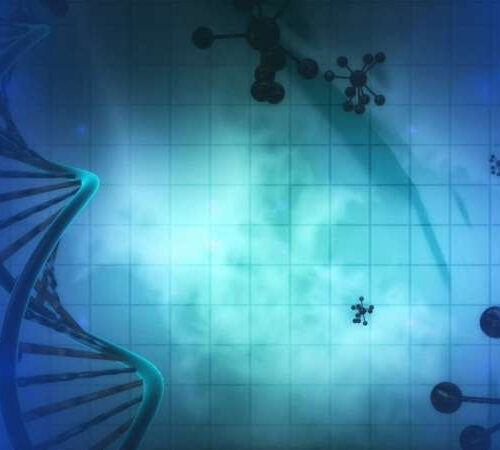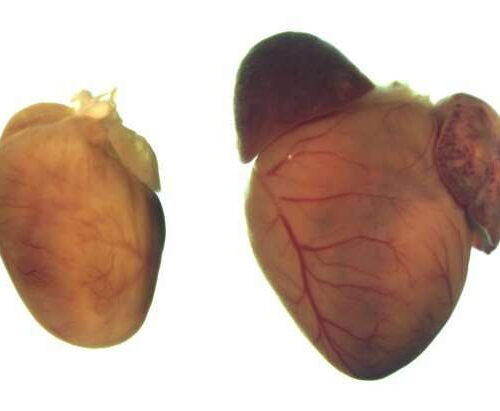by Melissa Rohman, Northwestern University Genetic relationships between IgA levels and human disease traits. a genome-wide genetic correlation analyses between IgA levels and autoimmune, infectious, and cardio-metabolic traits after exclusion of the HLA region (*P < 0.05; two-sided unadjusted P-values for genetic correlation by LD score regression). Supplementary Table 12 provides genetic correlations with and without HLA with...
Category: <span>Genetics</span>
New research shows genetic effect on the response to treatment for obesity
by National University of Ireland, Galway (a) Baseline body weight, by tertile of waist–hip ratio GRS. (b) baseline body mass index, by tertile of waist–hip ratio GRS. (c) Total body weight loss percentage at 24 weeks, by tertile of waist–hip ratio GRS. (d) Excess body weight loss percentage at 24 weeks, by tertile of waist–hip...
New approach successfully traces genomic variants back to genetic disorders
by NIH/National Human Genome Research Institute National Institutes of Health researchers have published an assessment of 13 studies that took a genotype-first approach to patient care. Credit: Julia Fekecs, NHGRI National Institutes of Health researchers have published an assessment of 13 studies that took a genotype-first approach to patient care. This approach contrasts with the typical phenotype-first approach to...
Time-restricted eating reshapes gene expression throughout the body
SALK INSTITUTE IMAGE: TIME-RESTRICTED EATING RESHAPES GENE EXPRESSION THROUGHOUT THE BODY. IN THIS ILLUSTRATION, THE FERRIS WHEEL DISPLAYS THE INTERCONNECTED ORGAN SYSTEMS WORKING SMOOTHLY DURING TIME-RESTRICTED EATING, WHICH IS REPRESENTED BY THE CLOCK IN THE MIDDLE. CREDIT: SALK INSTITUTE LA JOLLA (January 3, 2023)— Numerous studies have shown health benefits of time-restricted eating including increase...
New computer program ‘learns’ to identify mosaic mutations that cause disease
by University of California – San Diego This image was generated by artificial intelligence based upon a request for 3D art using a natural language interpretation of “artificial intelligence that detects mutations in the genome.” Credit: Joseph Gleeson/UC San Diego Genetic mutations cause hundreds of unsolved and untreatable disorders. Among them, DNA mutations in a...
Researchers map activity of inherited gene variants linked to prostate cancer
by UT Southwestern Medical Center Credit: Pixabay/CC0 Public Domain UT Southwestern researchers have identified the molecular function of 87 inherited genetic variants that affect the risk of prostate cancer, and the majority appear to control the activity of genes located far away from the risk variants themselves. The findings, published in Cancer Discovery, could lead to better ways...
Calorie restriction trial reveals gene that may prolong healthy life
A new study investigates calorie restriction in humans. Catherine MacBride/Stocksy Laboratory studies have found that some animals on calorie-restricted diets live longer. Researchers are keen to find out whether there is a similar effect in people. Now, a small-scale study suggests that moderate calorie restriction may benefit human health. The researchers identified a key protein that might increase...
Team identifies new pathogenic mechanism for diabetes onset in MODY3
by Helmholtz Association of German Research Centres Stem cell–derived beta cell cluster. Credit: Chenglei Tian & Henrik Semb In order to treat patients with diabetes in the best possible way it is necessary to understand the disease mechanism. MODY type 3 (MODY3) is a monogenic hereditary form of diabetes that is caused by a genetic defect in the...
Infant gene therapy is a breakthrough for Artemis-SCID patients
by University of California, San Francisco Credit: CC0 Public Domain Ten young children born without functioning immune systems and lacking the ability to fight infections are on track for healthier lives thanks to a new gene therapy treatment pioneered at UC San Francisco, reports a Dec. 22 study in the New England Journal of Medicine. The children...
Gene therapy corrects mutation responsible for common heart condition, research shows
by UT Southwestern Medical Center These representative hearts from 12-week-old mice show a normal heart (left) and an enlarged heart that’s characteristic of dilated cardiomyopathy. Credit: UT Southwestern Medical Center Using the CRISPR-Cas9 gene editing system, UT Southwestern researchers corrected mutations responsible for a common inherited heart condition called dilated cardiomyopathy (DCM) in human cells and a mouse...

